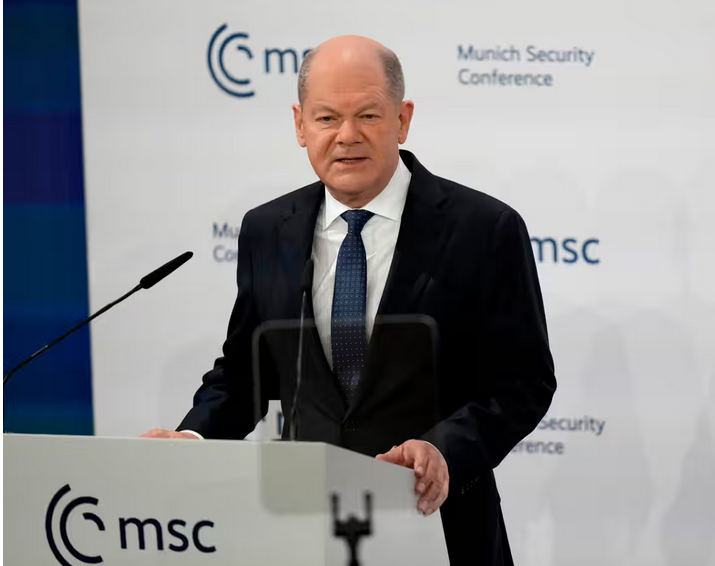German chancellor, Olaf Scholz, on Saturday, shot back strongly in defence of his stance against the far-right, and said his country will not accept people who “intervene in our democracy,” a day after US vice-president JD Vance scolded European leaders over their approach to democracy.
According to Associated Press (AP), the German leader spoke with just eight days before crucial elections in Germany, with polls showing the far-right Alternative for Germany party currently in second.
Vance said on Friday at the Munich Security Conference that he fears free speech is “in retreat” across the continent.
But Scholz had said, “Germany is a very strong democracy, and as a strong democracy, we are absolutely clear that the extreme right should be out of political control and out of political decision making processes, and that there will be no cooperation with them.
“We really reject any idea of cooperation between parties, other parties and this extreme right parties.”

Germany’s chancellor Olaf Scholz speaks during the Munich Security Conference on Saturday. Photograph: Matthias Schräder/AP
A day earlier, Vance said that many Americans saw in Europe “entrenched interests hiding behind ugly Soviet-era words like misinformation and disinformation, who simply don’t like the idea that somebody with an alternative viewpoint might express a different opinion or, God forbid, vote a different way, or even worse, win an election.”
Scholz, shooting back, said “free speech in Europe means that you are not attacking others in ways that are against legislation and laws we have in our country.” He was alluding to rules in Germany that restrict hate speech, reports the AP.
The comments came as European leaders have been trying to make sense of a tough new line from Washington on issues including democracy and Ukraine’s future, as the Trump administration continues to upend transatlantic conventions that have been in place since after the second world war.



